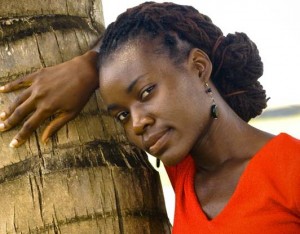I knew I had to be home on October 11.
Although it would mean blowing my modest student budget for a few months, I bought the cheapest ticket I could find from London to Monrovia. And despite well-intentioned warnings from those whom I love most, I came back to cast a ballot for the first time in my 29 years of life – almost the life-span of Liberia’s political and social upheavals.
I knew that this particular election would be a fight to the finish. I knew that it would be the difference between my homeland moving forward or taking a thousand steps backward. I wanted my vote to count because so many innocent people died in this “land of liberty” for a fragile peace that we so often take for granted.
At the entrance to my polling station, I cornered a woman dressed entirely in white except for a royal purple silk belt slung around her waist. Walking up and down the concrete asphalt, she roared at us with firebrand words of religiosity. I wondered why she was not in line. She said that, though her voting card had washed away by the sea, she had vowed to preach the gospel on October 11 and remind citizens that this was our last chance at salvation.
Inside the polling station, I felt like I had entered a secret world, abuzz with activity. When I finally made it to the front of the line, I went through the process like a convert. Every second felt sacred. There was no confusion. There was no chaos. There was only calm.
It’s become such a cliché these days that elections in Africa are ultimately doomed for failure. An election in Africa takes place, and people are at the edge of their seats because the anticipation of violence is so palpable you can taste it. It’s also standard practice for candidates to claim the elections have been rigged even before the results have come out, no matter how legitimate the process, or how free and fair the elections are reported to be.
Liberia in many ways debunked these clichés on October 11. With the exception of a quick turn-around by opposition parties who accused the National Elections Commission of fraud, we’ve proven that not only can we ‘do’ elections, but that we can ‘do’ democracy on our own terms. Because if what I witnessed on Tuesday, October 11, is a true testament of what has been labeled our “political maturity,” then our would-be leaders need to follow the example of the electorate by honoring the process.
This process has reminded me that democracy is not some Western manufactured concept meant to trick us. It is an evolving process, a process that we started in the villages when we appointed heads of clans, and had palava hut discussions about how the community would respond to the slightest transgressions. Things have slightly changed and we are now involving women in those discussions, though we have a very long way to go.
Democracy is what we make of it. It goes beyond the “war of words” during campaigning and on voting day. True democracy happens the morning after, when the polling stations have closed, and the love affair ends. It happens during the tediousness of counting, of tabulating, of announcing the results. It happens when a winner is declared and the so-called ‘loser’ concedes defeat in the name of national reconstruction. It happens when the winner finds a way to reconcile with the disillusioned and disaffected, and plans how to bring them into the fold.
What struck me on voting day, as I visited a number of polling stations, was the defiance in the eyes of young men and women I talked to in the borough of New Kru Town, and in the depressed communities of West Point, who stood out in the torrential rain because they believed their vote counted in the grand scheme of things. What they were doing by simply standing in line was reminding the politicians that whoever wins must contend with them, that mere support in the form of checking or thumbing a ballot paper did not mean blind support. They were saying that they expected more.
I too expect more in the next six years and beyond. The morning after elections, I woke up with a feeling of hope and anticipation. A week after elections, my hope is that we will collectively wake up to the possibilities of what true democracy and development mean for us. Whether it holds or not in the next few weeks, we have only just begun.

